It looks like you're using an Ad Blocker.
Please white-list or disable AboveTopSecret.com in your ad-blocking tool.
Thank you.
Some features of ATS will be disabled while you continue to use an ad-blocker.
share:
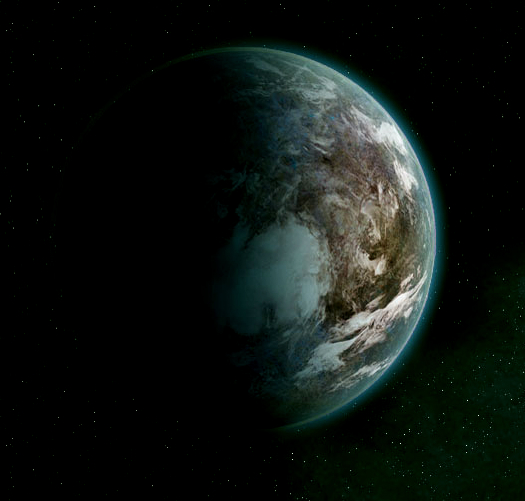
Excerpt from Space.com:
If not for life, Earth may not have possessed the continents it does now, instead becoming a planet covered nearly entirely in ocean, researchers say.
These new findings suggest that any continents astronomers may one day see on alien worlds may potentially be signs of extraterrestrial life, scientists added.
Earth is currently the only known planet in the universe that has liquid water on its surface. There is life virtually wherever there is liquid water on Earth, so one main focus of the search for extraterrestrial life as we know it is the region around a star where it is neither too hot nor too cold for liquid water to exist on a planet, an area known as the star's habitable zone.
Although water covers most of Earth's surface, nearly 30 percent of the planet is covered by land, sustaining a dazzling variety of life. Scientists might one day be capable of telling if distant planets are similarly covered by land, oceans and clouds by looking for reddish, bluish or grayish tints in the color of those worlds. Researchers have already developed maps of clouds on a giant planet orbiting a distant star.
Now researchers suggest Earth would have been a water world with very few continents, if any at all, without the presence of life.
A great deal of research has shown that life has had a major impact on the evolution of Earth's atmosphere and oceans. Plants and other photosynthetic life generate oxygen, giving Earth the only known atmosphere in the universe with significant levels of oxygen. Life also greatly influences how much carbon is in the atmosphere and oceans in the form of carbon dioxide and methane.
A bunch more at: www.space.com...
My thoughts:
Basically the research the article goes into has to do with the effect life has on the crust and mantle of the Earth, with an eye towards another indirect way we might detect life on an exoplanet. More on that later.
"When the Earth's surface is recycled in subduction zones, it affects processes in the deep interior," said study lead author Dennis Höning, a planetary scientist at the German Aerospace Center's Institute of Planetary Research in Berlin.
The magnitude of the effects biological weathering have on continental erosion globally are currently under debate, with estimates varying quite widely. To see what these effects might be, Spohn and his colleagues developed models of continent production and erosion that assumed that a world with no life had some fraction of the continental erosion rates currently estimated for Earth.
When the scientists ran their model of Earth with present-day continental erosion rates, it simulated a planet with a wet mantle that, after roughly 4 billion years, had a surface that was covered about 40 percent by continents, roughly similar to the real Earth. However, when the investigators ran their model with continental erosion rates 60 percent or less of present-day values, which one might see on a lifeless Earth, it simulated a planet with a dry mantle that, after some 4 billion years, "had continents covering only about 5 percent of its surface," Spohn said.
"The biggest surprise for me was the pronounced difference we saw," Spohn said. "We hoped to see a difference, but we didn't expect to see such a big difference." Höning, Spohn and their colleagues Hendrik Hansen-Goos and Alessandro Airo detailed their findings online Oct. 25 in the journal Planetary and Space Science.
The evolution of photosynthesis starting at least 3.4 billion years ago may have had an especially large impact on Earth's continents.
The takeaway from this is that if this model proves out then we have a very handy way to get clues as to whether an exoplanet has life.
If it is older than a few billion years and if it has large, persistent continents then according to their model it most likely has some form of life.
This along with biomarkers in the atmosphere such as oxygen and methane would pretty much present a slam dunk case of a planet with life.
The interesting thing is that we're planning to have a series of telescopes over the next 30 years which will first study nearby exoplanet atmospheres and later be able to directly image the planets and their oceans and continents.
From this roadmap from NASA:
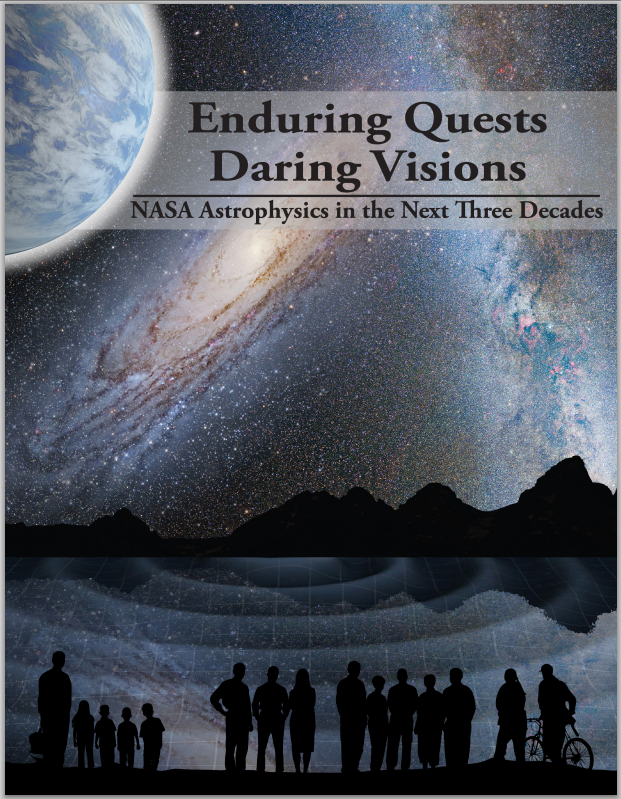
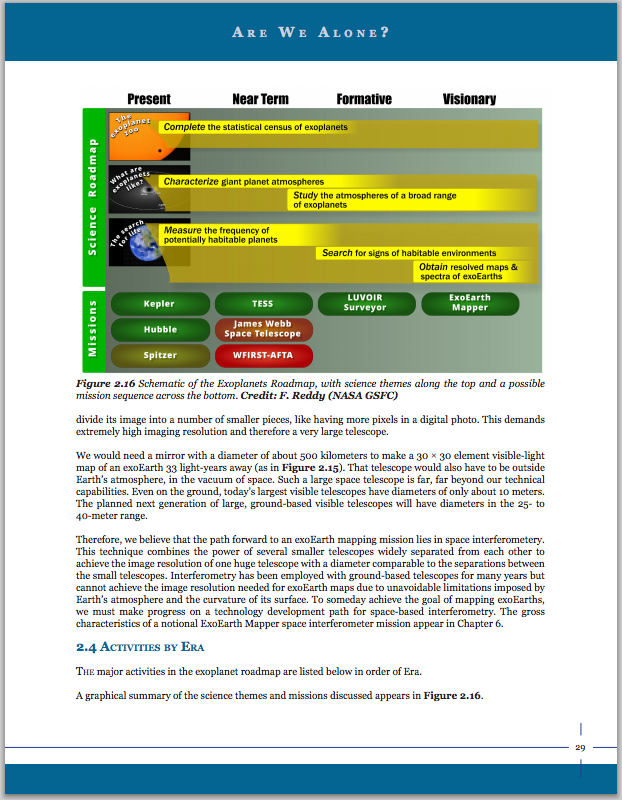
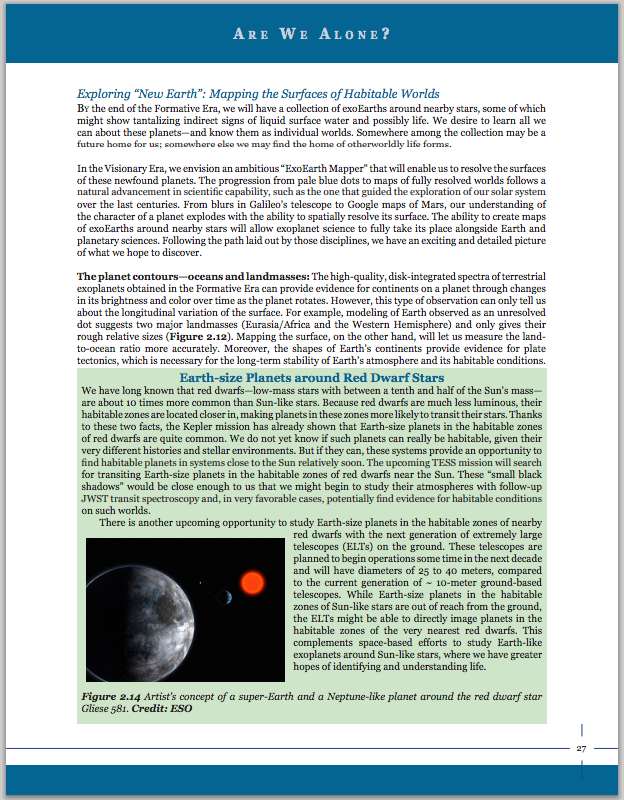
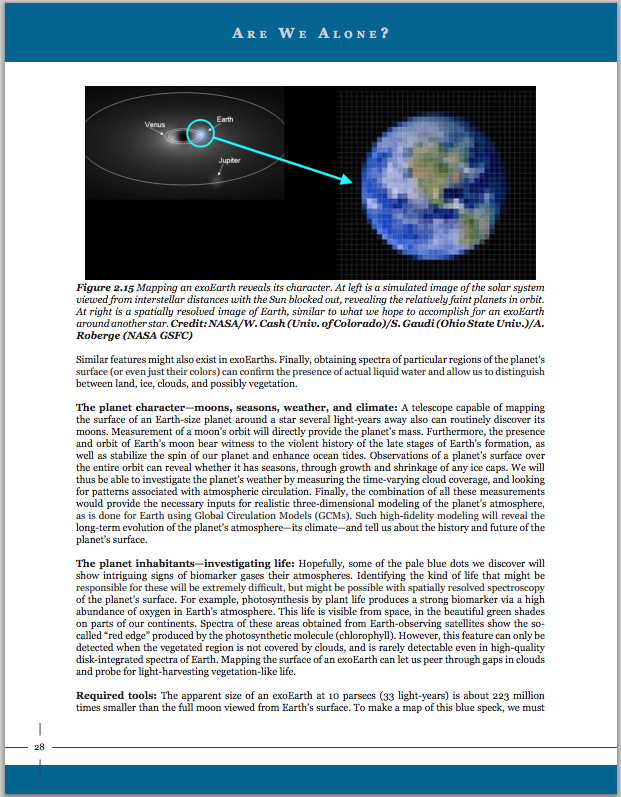
edit on 13-1-2014 by JadeStar because: (no reason given)
Very intresting, wish i had a billion or two of my own money i can donate to speed things up.
Even at 26 i fear all the cool stuff is to start long after im dead :/
Even at 26 i fear all the cool stuff is to start long after im dead :/
reply to post by crazyewok
I am 48, imagine my disappointment...... Although I would not trade what I have seen of the natural world for a life in space for anything.
Walking by the wonders of the world vs. Living in a spaceship=no contest. Given humanities current direction I may be quite lucky to not see the next level of progress for humanity. In part as I feel like the only chance humanity has of long term survival is leaving the planet for others.
I am 48, imagine my disappointment...... Although I would not trade what I have seen of the natural world for a life in space for anything.
Walking by the wonders of the world vs. Living in a spaceship=no contest. Given humanities current direction I may be quite lucky to not see the next level of progress for humanity. In part as I feel like the only chance humanity has of long term survival is leaving the planet for others.
crazyewok
Very intresting, wish i had a billion or two of my own money i can donate to speed things up.
You and me both.
If I had a billion I'd give it to the people who want to privately build the Colossus telescope. That would get us in less than 5 years to where we're supposed to be in 2030 by NASA's plan.
Lobbying Google, Apple, Microsoft or some other big tech company to build it might not be the worst thing in the world to be doing.
Even at 26 i fear all the cool stuff is to start long after im dead :/
Nah, you're only 6 years older than me and I am planning on being around when the first detailed images of exoEarths come in. I would love to become an exo-map maker. If you don't smoke, drink only socially in moderation and don't do anything that would win you a Darwin award then you'll probably make it
Who knows, by then you might even be an astrobiologist
edit on 13-1-2014 by JadeStar because: (no reason given)
edit on 13-1-2014 by JadeStar because: (no reason given)
Mamatus
reply to post by crazyewok
I am 48, imagine my disappointment...... Although I would not trade what I have seen of the natural world for a life in space for anything.
Walking by the wonders of the world vs. Living in a spaceship=no contest. Given humanities current direction I may be quite lucky to not see the next level of progress for humanity. In part as I feel like the only chance humanity has of long term survival is leaving the planet for others.
Even at 48, you won't be much older than 75 or so when the really cool stuff starts happening at the LATEST.
It might start even sooner. I'd even say that I am hopeful that it will, with big ground based telescopes coming on line like the US 30 meter telescope or the European Extremely Large Telescope (39 meter) we might get our first hint of life on other planets which may spur on a company or companies or public/private partnerships to build something like the 70 meter Colossus which could tell us not only if a planet out to 600 light years had life but whether it had heat producing technology in abundance.
The only reason it will take this long according to NASA is because of budgets. More money would mean a lot of this happens sooner.
We've had the technology to detect life on exoEarths since about 2005 but what we've lacked is the budget to build the space based interferometers the NASA study imagines 30 years out.
The NASA Terrestrial Planet Finder was supposed to be flying by 2025 as was Europe's Darwin mission. Both were cancelled.
If there was a push, we could find cool stuff right now. It's not outside of our technical ability. It's outside of our budget priorities.
edit on 13-1-2014 by JadeStar because: (no reason given)
Another wildcard in all this is what a major installation like the Square Kilometer Array might find. If it finds clear signs of intelligent life
(which it might since SETI plans to use it part time) then all this stuff gets built in a hurry.
edit on 13-1-2014 by JadeStar because: (no
reason given)
JadeStar
Lobbying Google, Apple, Microsoft or some other big tech company to build it might not be the worst thing in the world to be doing.
You know what both me and at least two mates would join you on that.
Jadestar
Nah, you're only 6 years older than me and I am planning on being around when the first detailed images of exoEarths come in. If you don't smoke, drink only socially in moderation and don't do anything that would win you a Darwin award then you'll probably make it
Who knows, by then you might even be an astrobiologist
edit on 13-1-2014 by JadeStar because: (no reason given)n
Well the smoking and drinking im great on ( evening being a brit) bur darwin award? Erm yeah .... that saying about the smarter you are the less common sense? Haha
edit on 13-1-2014 by crazyewok because: (no reason given)
edit on 13-1-2014 by crazyewok because: (no reason
given)
edit on 13-1-2014 by crazyewok because: (no reason given)
Well I'm 31! Just thought I'd throw that out there since everyone else was doing so...
Interesting evidence in the direction of life affecting the crust in such a way! If these "cool things" happen today, tomorrow or thirty years from now, I hope they happen whether I'm alive or dead, for the sake of humanity.
Interesting evidence in the direction of life affecting the crust in such a way! If these "cool things" happen today, tomorrow or thirty years from now, I hope they happen whether I'm alive or dead, for the sake of humanity.
crazyewok
JadeStar
Lobbying Google, Apple, Microsoft or some other big tech company to build it might not be the worst thing in the world to be doing.
You know what both me and at least two mates would join you on that.
Jadestar
Nah, you're only 6 years older than me and I am planning on being around when the first detailed images of exoEarths come in. If you don't smoke, drink only socially in moderation and don't do anything that would win you a Darwin award then you'll probably make it
Who knows, by then you might even be an astrobiologist
edit on 13-1-2014 by JadeStar because: (no reason given)n
Well the smoking and drinking im great on ( evening being a brit) bur darwin award? Erm yeah .... that saying about the smarter you are the less common sense? Hahaedit on 13-1-2014 by crazyewok because: (no reason given)edit on 13-1-2014 by crazyewok because: (no reason given)edit on 13-1-2014 by crazyewok because: (no reason given)
Lol, no what I meant was if you don't do anything stupid then you'll live to see it. (Darwin Award "winners" are basically people who die doing really stupid things.)
So yeah, stay healthy and avoid overly risky or stupid activities which might kill you and you'll be around.
Adramelech If these "cool things" happen today, tomorrow or thirty years from now, I hope they happen whether I'm alive or dead, for the sake of humanity.
Well said!
I call shenanigans on the scientists credentials and their common sense and logic processing.
Me thinks a sensationalized piece to try and get more funding, hoping of course the whole time no one will notice the stupidity of the article.
Explain to me how LIFE on a planet dictates how a planets tectonics plates move and create islands and continents.
Doesn't happen.
It's the inverse... The planets tectonics dictate whether or not there is land mass and that in turn dictates whether there is life as we know it.
Me thinks a sensationalized piece to try and get more funding, hoping of course the whole time no one will notice the stupidity of the article.
If not for life, Earth may not have possessed the continents it does now, instead becoming a planet covered nearly entirely in ocean, researchers say.
Explain to me how LIFE on a planet dictates how a planets tectonics plates move and create islands and continents.
Doesn't happen.
It's the inverse... The planets tectonics dictate whether or not there is land mass and that in turn dictates whether there is life as we know it.
edit on 13/1/2014 by Sovaka because: (no reason given)
I see how they are hoping to link photosynthesis to continent erosion and so on, and use that as an indicator of possible life, but how do they arrive
at the conclusion that a world without continents, but with plenty of water would be totally devoid of life?
I don't see how that necessarily follows...there may be worlds entirely covered with water that have active submarine volcanism, driving aquatic ecosystems couldn't there?
I thought that was the hope with Europa?
I don't see how that necessarily follows...there may be worlds entirely covered with water that have active submarine volcanism, driving aquatic ecosystems couldn't there?
I thought that was the hope with Europa?
reply to post by Sovaka
That was kind of my thinking too...at least as far as life on land goes...it doesn't hold true for aquatic life surely?
That was kind of my thinking too...at least as far as life on land goes...it doesn't hold true for aquatic life surely?
crazyewok
Very intresting, wish i had a billion or two of my own money i can donate to speed things up.
Even at 26 i fear all the cool stuff is to start long after im dead :/
yes, tho there is always cool stuff to miss at the end. Imagine some one said back then, "Too bad my parent did not live to the moment humans put their feet on the Moon". Sucks, I know.
Just came to mind a question, not trying to high jack the thread or anything like that, not familiar with Apollo mission details but Americans or who knows, how far in advance the government announced that mission in plans? When the media released about the decision to put man on the Moon program?
sorry if off topic. It just fascinates me that today I can basically calculate my expectancy to witness the event based on announced estimates. Back to Apollo missions matters, did average American know about Apollo program before it took place and how much in advance it was known?
Love this board, cheers everyone.
reply to post by MysterX
While true if there were no plants to stop erosion... It would still take an uber long time to erode down a continent of bed rock.
So much so that over the planets life, if there were enough volcanic activity... there would always be islands or continents.
But yes, that's what I was getting at in terms of aquatic life.
Just because we don't recognize any of our aquatic life as sentient yet... doesn't mean that life didn't evolve down an aquatic path on a different planet.
While true if there were no plants to stop erosion... It would still take an uber long time to erode down a continent of bed rock.
So much so that over the planets life, if there were enough volcanic activity... there would always be islands or continents.
But yes, that's what I was getting at in terms of aquatic life.
Just because we don't recognize any of our aquatic life as sentient yet... doesn't mean that life didn't evolve down an aquatic path on a different planet.
crazyewok
Even at 26 i fear all the cool stuff is to start long after im dead :/
At 31...

But hey, maybe something will surprise us one of these days.
MysterX
I see how they are hoping to link photosynthesis to continent erosion and so on, and use that as an indicator of possible life, but how do they arrive at the conclusion that a world without continents, but with plenty of water would be totally devoid of life?
They don't. Nowhere do they say that.
They simply say that a waterworld on its own wouldn't be an indicator of life. Though it very well could have life, just finding water worlds will not tell us that they have life.
What they are saying is that older planets with persistent large continents -could- be an indicator of life.
I don't see how that necessarily follows...there may be worlds entirely covered with water that have active submarine volcanism, driving aquatic ecosystems couldn't there?
I thought that was the hope with Europa?
Correct on all counts.
They're just using continental persistence as a possible biomarker.
edit on 13-1-2014 by JadeStar because: (no reason given)
reply to post by JadeStar
That's how i interpret the quote you included from space.com...?
It clearly says Earth would be a water world, with essentially no landmass...with no life...like i said ?
Really confused now...
As i say, a water world must be at least an indicator of life, as the article and just about everything i've ever read or heard on the subject states that where there is water, there is life..usually.
That has GOT to be an indicator of life...a planet full of the stuff...no?
Now researchers suggest Earth would have been a water world with very few continents, if any at all, without the presence of life.
That's how i interpret the quote you included from space.com...?
It clearly says Earth would be a water world, with essentially no landmass...with no life...like i said ?
Really confused now...
As i say, a water world must be at least an indicator of life, as the article and just about everything i've ever read or heard on the subject states that where there is water, there is life..usually.
That has GOT to be an indicator of life...a planet full of the stuff...no?
edit on 13-1-2014 by MysterX because: added info
I have heard some where that if life to evolve, the planet has to have combination of land and the ocean, it must have continents. Main argument was
that electricity could not be used in underwater world due to physical laws. And the use of electricity is paramount for self aware life forms to
emerge.
hope I contributed to the thread)
hope I contributed to the thread)
edit on 13-1-2014 by darkorange because: (no reason given)
I'm always a tad confused as to why they think anything living out there would require the same (or similar), environmental conditions as us.
Just because we need certain temperatures and conditions to survive and thrive here doesn't (to me), mean other species elsewhere would be the same. We have organisms here on Earth that can survive boiling hot conditions (as seen around underwater volcanos etc), so it seems odd to only look to these planets that exist under these conditions.
Who's to say "Mr Blue Alien Man" cannot survive double our gravity and temperatures we have here? If that's how they evolved then it seems quite possible this could occur.
Just because we need certain temperatures and conditions to survive and thrive here doesn't (to me), mean other species elsewhere would be the same. We have organisms here on Earth that can survive boiling hot conditions (as seen around underwater volcanos etc), so it seems odd to only look to these planets that exist under these conditions.
Who's to say "Mr Blue Alien Man" cannot survive double our gravity and temperatures we have here? If that's how they evolved then it seems quite possible this could occur.
edit on 13/1/14 by TRiPWiRE because: (no reason given)
new topics
-
Elon's Starlink Stole The Election For Trump--Leftist Conspiracy Theorists Charge
General Conspiracies: 2 hours ago -
Speaker Johnson Orders Entire Biden Administration to Preserve and Retain All Records - Documents
US Political Madness: 2 hours ago -
Resident Plane enthusiasts needed weird noise
General Chit Chat: 5 hours ago -
Fired FEMA Employee Says It Was Not ‘Isolated’ Incident: ‘Colossal Event Of Avoidance’
US Political Madness: 8 hours ago -
Australia has been holding out on us
Music: 8 hours ago
top topics
-
Fired FEMA Employee Says It Was Not ‘Isolated’ Incident: ‘Colossal Event Of Avoidance’
US Political Madness: 8 hours ago, 23 flags -
Speaker Johnson Orders Entire Biden Administration to Preserve and Retain All Records - Documents
US Political Madness: 2 hours ago, 14 flags -
Elon's Starlink Stole The Election For Trump--Leftist Conspiracy Theorists Charge
General Conspiracies: 2 hours ago, 13 flags -
Resident Plane enthusiasts needed weird noise
General Chit Chat: 5 hours ago, 4 flags -
Australia has been holding out on us
Music: 8 hours ago, 3 flags
active topics
-
Elon's Starlink Stole The Election For Trump--Leftist Conspiracy Theorists Charge
General Conspiracies • 15 • : putnam6 -
President-Elect DONALD TRUMP's 2nd-Term Administration Takes Shape.
Political Ideology • 129 • : WeMustCare -
President-Elect Donald Trump will Meet with Coup-Victim JOE BIDEN on Wed 11.13.2024.
2024 Elections • 16 • : WeMustCare -
60s-70s Psychedelia
Music • 49 • : anthelion -
Speaker Johnson Orders Entire Biden Administration to Preserve and Retain All Records - Documents
US Political Madness • 19 • : Lumenari -
Election statistics question
2024 Elections • 20 • : chr0naut -
Trump Portrait Ended Better Than Expected--WATCH THIS
2024 Elections • 13 • : CarlLaFong -
Resident Plane enthusiasts needed weird noise
General Chit Chat • 9 • : Flyingclaydisk -
JOE Biden's secret polling shows Trump destroying the president
2024 Elections • 18 • : WannabeeAuCourant -
Should we look for the truth, or just let it go?
US Political Madness • 90 • : argentus
